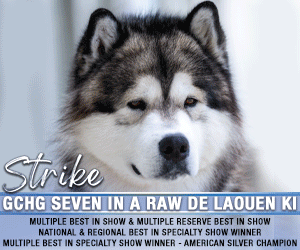From The CC Vault: “The Contract”
By Debra Vey Voda-Hamilton, Esq./Mediator
 The world of AKC dog shows seems to be ruled by contracts. We enter into oral or written contracts to buy, handle, register, breed, show, and co-own our dogs.
The world of AKC dog shows seems to be ruled by contracts. We enter into oral or written contracts to buy, handle, register, breed, show, and co-own our dogs.
A contract is an agreement entered into freely by two or more legally competent parties who have the capacity to exchange consideration and create a mutual legal obligation. The agreement is not dependent on whether you’ve read the terms of the contract, voluntarily acquiesced or believe what the terms say. In fact, most exhibitors, handlers and dog owners never read the contracts they enter into. They are thrilled to be getting a puppy from that nationally-recognized breeder, selling a puppy to a well-respected owner, having a successful handler handle the puppy, or submitting their entry into that prestigious show. By the way, this is not only endemic to the sport of purebred dogs — those who adopt from rescues and shelters sign unread contracts all the time. The adopters feel they are doing a corporeal work of mercy so why read the fine print. It is that fine print in a contract that is not to be ignored.
Now, for the attorneys in the sport, this article is meant to provide legal information for the benefit of the reader. It is not giving nor meant to be used as legal advice, which you can only get from an attorney licensed to practice in your state. Now we will look at how contracts made with the best of intention (or not) go awry and what you might do to save the relationship.
Question 1: Did you read the contract you entered into with your breeder, buyer, leaseholder, handler or even the show superintendent?
If your answer is no, go back and read it now. You may have agreed to things you didn’t understand or worse, to which you had no intention of agreeing. Reading the contract that is the basis of an agreement is the single most important thing you need to do. If an oral agreement is made, you may want to verbally memorialize that agreement on your smart phone on the day you enter into it, having all the parties participate in the recording. It may not be admissible in court, but you can use it in informal discussions.
If you have questions about a contract you signed, this article will provide you with some insight into ways to explore possible alternative dispute resolution processes to address these questions. Such alternative processes may allow you to engage in a more peaceful dialogue about a misunderstanding or disagreement, thereby nipping the conflict in the bud before it nips you in the butt.
Question 2: If you read the contract did you understand all the terms and responsibilities enumerated and required?
If your answer is no maybe you should ask the drafter of the contract, not your neighbor, for clarification of things you do not understand. The drafter is required to explain what the terms within their contract mean. For better or worse, confusion as to the understanding of a term in a contract is construed against the drafter. Get the definition of a confusing term from the ‘horses mouth.’ This is the only way a contract can reach full agreement.
Question 3: Do you want to maintain a good relationship with the person/people with whom you have contracted?
This is very important on both sides of the contract. Maintaining open lines of communication among the parties can nip conflict in the bud like no other method of resolution. Being able to ask the drafter in a non-threatening way what they meant, or explain what you meant if you think a misunderstanding is brewing is key to addressing issues and avoiding litigation.
Question 4: How do you resolve a disagreement that arises out of the contract?
If there isn’t a clause for resolution of disagreements in your contract, ask the parties to the contract to explore the possibilities of adding one. You can ask for this whether you are the creator or simply a signator to the agreement. It will encourage everyone to explore and possibly agree to add an alternative method of resolution to an already existing contract that requires the parties to engage in before litigation. Either side can bring the parties together and employ alternative dispute resolution to conduct a confidential clarifying discussion.
Typical solution clauses include arbitration or mediation of issues. In arbitration, the arbitrator typically reviews documents and hears argument from the parties then renders a decision. The arbitrator’s decision, whether good or bad, is often if not always final. In mediation, the mediator does not make a decision, rather they support each side’s view of the facts, allowing the parties to control the process, work together to resolve their differences and find a solution they can abide by while retaining their relationship going forward. If the issues cannot be resolved in mediation, the parties can proceed to litigation which is often more costly and protracted.
In the world of AKC dog shows, entering into contracts is an every day occurrence. It allows for smoother transitions and conversations. Reading these contracts, with a view toward understanding the meaning of each term is crucial. Reasons given for not reading a contract can run the gamut from no time, to trusting the other party, to not wanting to appear stupid, to feeling bullied into agreeing or grateful for the opportunity to have this puppy or person on your team. Whatever the reason for not reading the contract, it is not a good one.
Always ask that a clause requiring alternative dispute resolution be placed in the contract. It not only encourages you to have a conversation before you sign the contract, it protects your ability to continue to have a conversation and maintain relationships with all the parties. This clause can help you avoid endless and costly litigation where conversation is seldom if ever permitted.
This is the first in a four part series on contracts. The next article is entitled: Nipped in the Bud, Not in the Butt – Using Terms and Language that are Enforceable.
Until then, see you ringside.
Short URL: https://caninechronicle.com/?p=260873
Comments are closed












